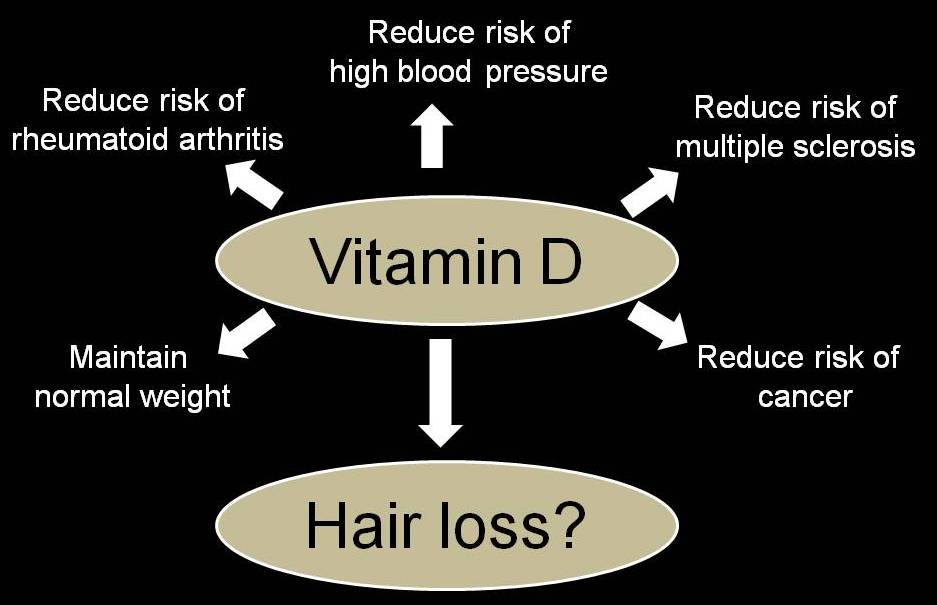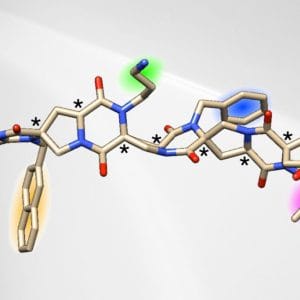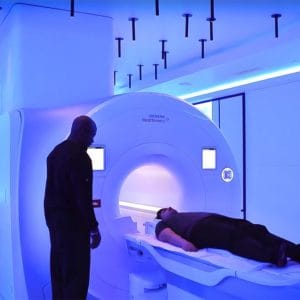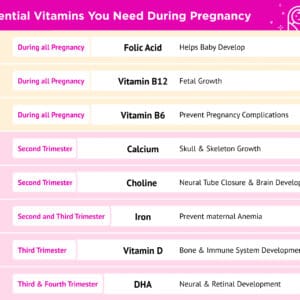Vitamin D is a crucial nutrient that plays a significant role in maintaining overall health, and recent studies have shed light on its connection to hair loss. Research suggests that a deficiency in vitamin D may contribute to hair loss, particularly in cases of alopecia areata and other autoimmune disorders. As the link between vitamin D and hair loss becomes clearer, many are left wondering how this essential vitamin impacts hair growth and what can be done to prevent or treat hair loss related to vitamin D deficiency, a condition affecting millions worldwide.

The Relationship Between Vitamin D and Hair Loss
The link between Vitamin D and hair loss has been a topic of interest for many researchers and health professionals. Studies have shown that Vitamin D plays a crucial role in maintaining healthy hair follicles and promoting hair growth. A deficiency in Vitamin D has been linked to various types of hair loss, including Alopecia Areata and Telogen Effluvium.
The Role of Vitamin D in Hair Growth
Vitamin D is essential for the normal functioning of hair follicles. It helps to regulate the hair growth cycle and maintain the health of the scalp. Research has shown that Vitamin D receptors are present in hair follicles, and that Vitamin D helps to promote the growth of new hair by regulating the expression of genes involved in hair growth.
| Vitamin D Function | Effect on Hair Growth |
|---|---|
| Regulates hair growth cycle | Promotes healthy hair growth |
| Maintains scalp health | Prevents conditions like dandruff and itchiness |
Vitamin D Deficiency and Hair Loss
A deficiency in Vitamin D has been linked to various types of hair loss. Research has shown that individuals with Alopecia Areata, a condition characterized by patchy hair loss, often have low levels of Vitamin D. Similarly, individuals with Telogen Effluvium, a condition characterized by excessive hair shedding, may also have low levels of Vitamin D.
| Hair Loss Condition | Association with Vitamin D Deficiency |
|---|---|
| Alopecia Areata | Commonly associated with low Vitamin D levels |
| Telogen Effluvium | May be triggered by Vitamin D deficiency |
Symptoms of Vitamin D Deficiency
A deficiency in Vitamin D can cause a range of symptoms, including hair loss, fatigue, and muscle weakness. Other symptoms may include bone pain and depression. It’s essential to consult a healthcare professional if you’re experiencing any of these symptoms.
| Symptom | Description |
|---|---|
| Hair loss | Excessive shedding or thinning of hair |
| Fatigue | Feeling tired or weak |
Food Sources of Vitamin D
While sunlight is the best source of Vitamin D, certain foods can also provide this essential nutrient. Fatty fish, such as salmon and mackerel, are rich in Vitamin D, as are fortified dairy products and mushrooms.
| Food Source | Vitamin D Content |
|---|---|
| Salmon | High in Vitamin D |
| Fortified milk | Good source of Vitamin D |
Treating Hair Loss with Vitamin D
While Vitamin D is essential for maintaining healthy hair, it’s not a standalone solution for hair loss. Treatment for hair loss typically involves a combination of lifestyle changes, including dietary modifications and stress management, as well as medical treatments. Consulting a healthcare professional is essential to determine the best course of treatment for hair loss.
| Treatment Option | Description |
|---|---|
| Dietary modifications | Increasing Vitamin D intake through food sources or supplements |
| Medical treatments | Using medications or therapies to promote hair growth |
How is vitamin D related to hair loss?

Vitamin D is related to hair loss through its role in regulating hair growth and maintenance. Research has shown that vitamin D receptors are present in hair follicles, and that vitamin D deficiency may contribute to hair loss. The relationship between vitamin D and hair loss is complex and involves multiple mechanisms.
The Role of Vitamin D in Hair Growth
Vitamin D plays a crucial role in regulating the hair growth cycle. It helps to promote the transition from the resting phase to the growth phase, leading to an increase in hair density. Some key aspects of vitamin D’s role in hair growth include:
- Regulation of hair follicle cycling: Vitamin D helps to regulate the hair follicle cycle, promoting the transition from the telogen phase to the anagen phase.
- Modulation of hair growth-related genes: Vitamin D has been shown to modulate the expression of genes involved in hair growth, including those related to the Wnt/β-catenin signaling pathway.
- Inhibition of hair follicle inflammation: Vitamin D has anti-inflammatory properties, which can help to reduce inflammation in the hair follicle and promote a healthy environment for hair growth.
Vitamin D Deficiency and Hair Loss
Vitamin D deficiency has been linked to various forms of hair loss, including alopecia areata and female pattern hair loss. The mechanisms underlying this association are not fully understood but may involve:
- Disruption of hair follicle cycling: Vitamin D deficiency can disrupt the normal cycling of hair follicles, leading to an increase in hair shedding and a decrease in hair density.
- Increased inflammation: Vitamin D deficiency can lead to increased inflammation in the body, which can contribute to hair loss by promoting inflammation in the hair follicle.
- Impaired hair growth: Vitamin D deficiency can impair hair growth by reducing the expression of genes involved in hair growth and maintenance.
Maintaining Adequate Vitamin D Levels for Hair Health
Maintaining adequate vitamin D levels is essential for overall health, including hair health. Some ways to maintain adequate vitamin D levels include:
- Sunlight exposure: Exposure to sunlight triggers the production of vitamin D in the skin, making it an essential factor in maintaining adequate vitamin D levels.
- Dietary sources: Consuming foods rich in vitamin D, such as fatty fish, egg yolks, and fortified dairy products, can help to maintain adequate vitamin D levels.
- Supplements: Taking vitamin D supplements can help to maintain adequate vitamin D levels, particularly during winter months or for individuals with limited sun exposure.
Can vitamin D reverse alopecia?

Vitamin D has been linked to various health benefits, including the potential to reverse alopecia. Research suggests that vitamin D deficiency may contribute to the development of alopecia areata, an autoimmune condition characterized by hair loss. Studies have shown that vitamin D receptors are present in hair follicles, and vitamin D may play a role in regulating hair growth.
The Role of Vitamin D in Hair Growth
Vitamin D is thought to influence hair growth by regulating the expression of genes involved in the hair cycle. Vitamin D receptors are present in the hair follicle, and vitamin D binding to these receptors may help to promote hair growth. The potential mechanisms by which vitamin D influences hair growth include:
- Inhibition of apoptosis: Vitamin D may help to prevent the death of hair follicle cells, promoting hair growth.
- Regulation of the hair cycle: Vitamin D may influence the transition between the anagen and telogen phases of the hair cycle.
- Modulation of immune responses: Vitamin D may help to regulate immune responses and prevent autoimmune damage to the hair follicle.
Vitamin D Deficiency and Alopecia Areata
Research has suggested that vitamin D deficiency may be more common in individuals with alopecia areata. Low vitamin D levels have been linked to an increased risk of developing alopecia areata, and some studies have suggested that vitamin D supplementation may help to promote hair growth in individuals with this condition. The potential link between vitamin D deficiency and alopecia areata may be related to:
- Impaired immune regulation: Vitamin D deficiency may contribute to impaired immune regulation, increasing the risk of autoimmune conditions like alopecia areata.
- Disrupted hair cycle: Vitamin D deficiency may disrupt the normal hair cycle, leading to hair loss.
- Increased inflammation: Vitamin D deficiency may contribute to increased inflammation, which may exacerbate alopecia areata.
Vitamin D Supplementation and Hair Growth
Some studies have investigated the potential benefits of vitamin D supplementation for promoting hair growth in individuals with alopecia areata. While the evidence is limited, some research suggests that vitamin D supplementation may help to promote hair growth. The potential benefits of vitamin D supplementation for hair growth include:
- Improved hair density: Vitamin D supplementation may help to improve hair density in individuals with alopecia areata.
- Enhanced hair growth: Vitamin D supplementation may promote hair growth by regulating the hair cycle and preventing apoptosis.
- Reduced inflammation: Vitamin D supplementation may help to reduce inflammation and modulate immune responses, which may contribute to hair growth.
How much vitamin D to take to regrow hair?

The amount of vitamin D required to regrow hair is not strictly defined, as it depends on various factors such as the individual’s current vitamin D levels, the severity of hair loss, and overall health. However, research suggests that maintaining adequate vitamin D levels is essential for promoting hair growth.
The Role of Vitamin D in Hair Growth
Vitamin D plays a significant role in maintaining the health of hair follicles. It helps to regulate the growth and differentiation of hair follicle cells, and its deficiency has been linked to various forms of hair loss, including alopecia areata and androgenetic alopecia. The following are key ways vitamin D influences hair growth:
- Regulation of hair follicle cycling: Vitamin D helps to regulate the transition of hair follicles from the resting phase to the growth phase.
- Modulation of immune responses: Vitamin D has immunomodulatory effects, which can help to reduce inflammation and promote a healthy environment for hair growth.
- Maintenance of hair follicle health: Vitamin D is involved in the maintenance of hair follicle integrity and helps to prevent hair loss caused by follicle damage.
Recommended Vitamin D Intake for Hair Growth
While there is no specific recommended daily intake of vitamin D for hair growth, maintaining a level within the normal range (typically between 20-40 ng/mL) is considered essential. The following are general guidelines for vitamin D intake:
- Daily intake recommendations: The recommended daily intake of vitamin D varies by age, with adults typically requiring 600-800 IU per day.
- Individual needs: Some individuals, such as those with vitamin D deficiency or insufficiency, may require higher doses (up to 2,000-5,000 IU per day) under medical supervision.
- Monitoring vitamin D levels: Regular monitoring of vitamin D levels is necessary to ensure that the chosen dosage is effective and safe.
Potential Risks and Considerations
When taking vitamin D supplements for hair growth, it is essential to be aware of the potential risks and considerations. The following are key factors to keep in mind:
- Toxicity risk: High doses of vitamin D can lead to toxicity, causing symptoms such as nausea, vomiting, and kidney damage.
- Interactions with medications: Vitamin D supplements may interact with certain medications, such as blood thinners and cholesterol-lowering drugs.
- Individual variability: The effectiveness of vitamin D supplements for hair growth can vary significantly between individuals, and other factors such as diet, lifestyle, and overall health also play a role.
Frequently Asked Questions
What is the relationship between Vitamin D and hair loss?
Vitamin D plays a significant role in maintaining healthy hair follicles, and research suggests that Vitamin D deficiency may be linked to hair loss. Studies have shown that Vitamin D receptors are present in hair follicles, and the vitamin helps regulate the growth and differentiation of hair follicle cells. Hair follicle cycling is also influenced by Vitamin D, with the vitamin helping to promote the transition from the resting phase to the growth phase. As a result, a deficiency in Vitamin D may lead to hair loss due to impaired hair follicle function.
Can Vitamin D supplements help prevent hair loss?
While Vitamin D supplements may help address hair loss caused by a Vitamin D deficiency, it’s essential to consult with a healthcare professional before taking any supplements. They will help determine the underlying cause of hair loss and recommend the best course of treatment. Vitamin D supplementation may be beneficial for individuals with a diagnosed deficiency, but it’s not a guaranteed solution for hair loss caused by other factors. Maintaining a balanced diet rich in Vitamin D-rich foods, such as fatty fish, egg yolks, and fortified dairy products, is also crucial.
How does Vitamin D affect hair growth?
Vitamin D has been shown to influence hair growth by regulating the expression of genes involved in hair follicle development and cycling. It also helps maintain the health of hair follicle stem cells, which are essential for hair regeneration. Additionally, Vitamin D has anti-inflammatory properties, which may help reduce inflammation in the scalp and promote a healthy environment for hair growth. Ensuring adequate Vitamin D levels is vital for maintaining optimal hair health.
Are there any other nutrients that work together with Vitamin D to prevent hair loss?
Vitamin D works in conjunction with other nutrients to maintain healthy hair. For example, calcium and magnesium are essential for hair growth, and Vitamin D helps regulate their absorption in the body. Omega-3 fatty acids, found in fatty fish, also support hair health by reducing inflammation and promoting healthy hair follicles. A well-balanced diet that includes a variety of whole foods, along with a healthy lifestyle, is crucial for maintaining optimal hair health and preventing hair loss.














